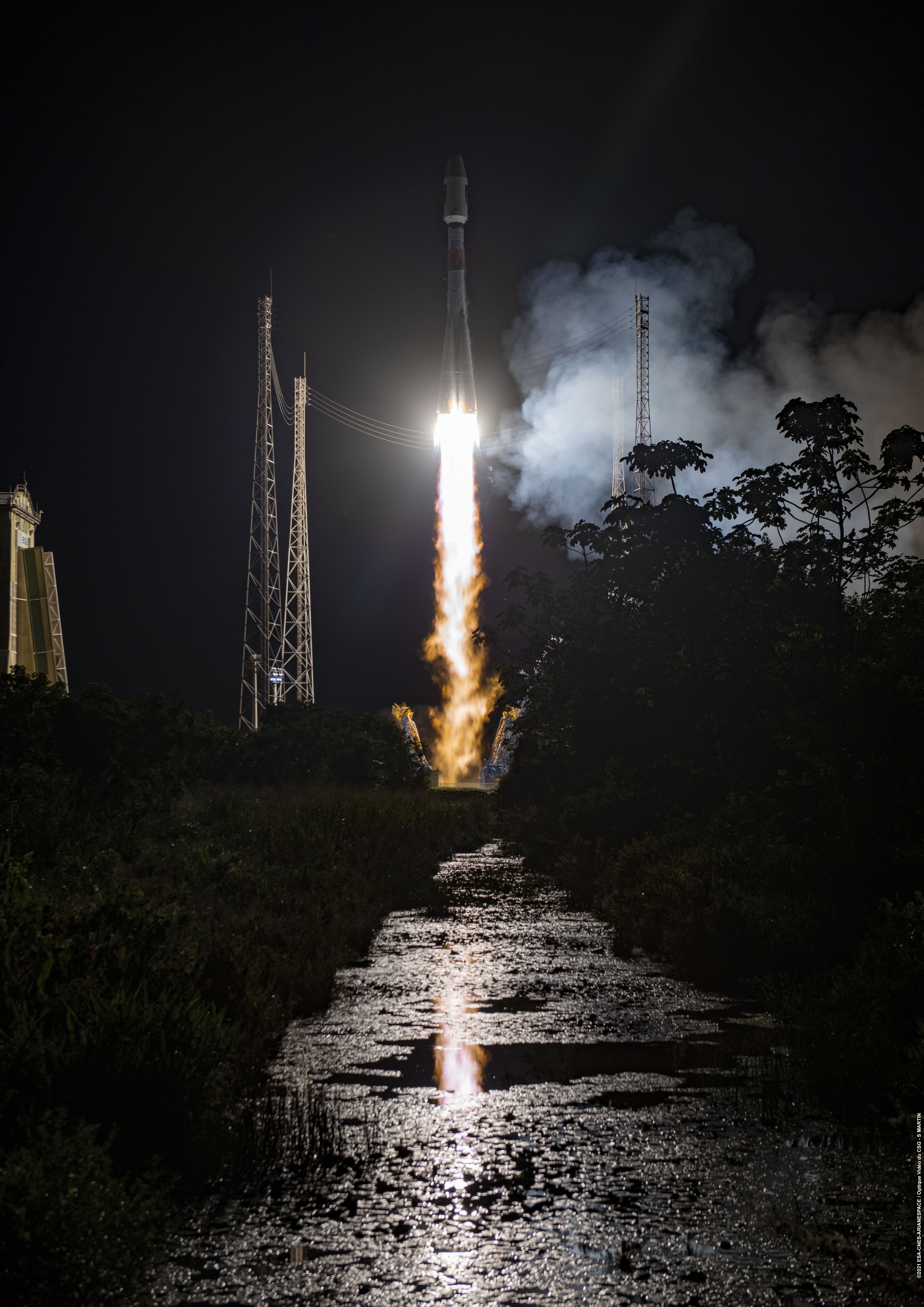The rocket lifted-off at 1:19am CET with the separation of the two satellites from the launcher occurred 4 hours later, at approximately 22500 km of altitude. With this launch, the 11th launch of the Galileo programme, the constellation will be composed of 28 spacecrafts in orbit.
For the accurate positioning to their final orbit, at exactly 23222 Km, the two brand-new satellites (GSAT0223 and GSAT0224) are now facing the 10-days-long "Launch and Early Orbit Phase" (LEOP) followed by 25 days of drift and fine positioning operations.
It is performed by DLR GfR with mission directive of Spaceopal under the responsability of EUSPA and for the first time in the programme from the Galileo Control Centre (GCC) in Oberpfaffenhofen, near Munich in Germany.
Oberpfaffenhofen manages the constellation together with its sister centre at Telespazio’s Fucino Space Center, Italy, and during 2021, both Galileo Control Centres have been upgraded with a new system build enhancing its capabilities, among others to enable LEOP operations. Both GCC are managed by Spaceopal, a joint venture between Telespazio and DLR GfR, which since November 2010 has been the main contractor for operational services for Galileo (Galileo Service Operator, GSOp).

"It is a real satisfaction, after 12 years from the foundation of Spaceopal, to state the positive results of the collaboration with EUSPA and all European institutional stakeholders as well as the trust put on us in each and every moment of the Galileo service provision. We are proud to guide a highly professional industrial team to provide with devotion the 24/7 Galileo service operations with all global ground and space assets deployed".
Marco Folino, CEO of Spaceopal.
Galileo is the result of a robust collaboration between EUSPA (the European Space Programme Agency), the European Commission, the European Space Agency (ESA) and industrial partners. This latest eleventh launch has confirmed Galileo as a success story in which the European institutions and several industrial partners have worked in deep synergy to build the system and provide its service.
‘’Today we can proudly celebrate another milestone achieved by the European Union’s most ambitious and largest industrial project, Galileo’’.
Rodrigo da Costa, EUSPA Executive Director.
Today Galileo, the world’s most precise global navigation satellite system and composed, counts on more than 2 billion users around the world and is continuing evolve. New services, currently under testing, will soon be available to users opening new market opportunities across various industries.
“We are proud to state that Galileo is the world’s most precise satellite navigation system. Due to its complexity, these extraordinary results by end-to-end operating and maintain the Galileo system can only be reached by putting together several and variegated technical competences spread over a wide, international team, that we are proud to lead under a unique vision and ambition”.
Emiliano Agosta, Technical Director of Spaceopal.

